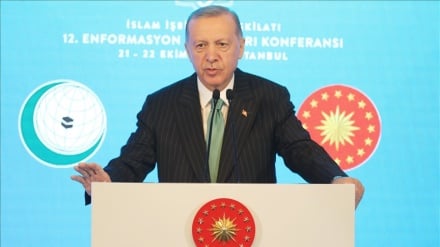New York Times' columnist trying to depict Israel's superiority over Iran
Pars Today- Bret Stephens, New York Times columnist, in his article, "Who is More in Trouble: Israel or Iran?" has raised claims some of which are merely unreal, baseless and irrelevant rhetoric. Here we are going to mention some of his claims.
Bret Stephens starts his article with highlighting two dates: 1948 and 1979. The first date is the year of fabrication of the illegitimate Israeli regime by Western colonialists in Palestine and the second is the year when the despotic Pahlavi regime was overthrown and the Islamic Revolution triumphed in Iran resulting in the establishment of the Islamic Republic ruling system in less than two months.
The writer has correctly mentioned the point that these two dates cannot be juxtaposed in this region. Yet, he doesn't refer to the nature of this incongruity: a regime representing colonialism and a republic based on combat against colonialism; one is fake and based on forceful and deceptive migration of Jewish Westerners, but the other one is indigenous, authentic, and as old as the Iranian Plateau. The natural result is that Iran will never comply with Israel.
But the troubles of Israel are not limited to nature or authenticity. Recently, the International Criminal Court issued arrest warrant for Netanyahu, not because of being an Israeli but for being a war criminal.
The New York Times columnist believes that it is not unlikely that the world countries will arrest the leader of a nuclear-armed "country" with a "powerful" intelligence organization.
It is not clear if Bret Stephens is threatening or he has another intention. But, just as Hamas, Lebanese resistance, Yemeni resistance and the Islamic Republic of Iran attacked the Israeli military bases, while none of them possesses nuclear weapons, it is quite probable to arrest Benjamin Netanyahu.
Stephens maintains that the aim of announcing the issuance of Netanyahu's arrest warrant, because of war crimes, is tantamount to delegitimizing and isolating him internationally.
Surprisingly, the writer protests to putting Netanyahu's name beside the leaders of the Palestinian resistance (Hamas) and believes that this will dwindle the "ethical" status of Netanyahu and his war minister!!! It is exactly like protesting to putting Hitler's name beside the names of the French resistance forces; as the status of Hitler is above them!!!
The soldiers affiliated to the Israeli regime have massacred over 35 thousand people in the Palestinian Territories at the behest of Benjamin Netanyahu.
Stephens then points to the event of helicopter carrying the Iranian president and foreign minister, saying that the Islamic Republic of Iran has been weakened with this incident.
The writer, in a very weird manner, condemns the serious confrontation of President Raeisi with terrorists during the 1979 Islamic Revolution and also those who were complicit with Saddam during the 8-year war of 1980s in invading Iran. Bret Stephens claims that Raeisi, who is famous as a selfless and calm person, had a violent character.
The writer then appears as a propagandist of the American warmongering ilk and says that the Islamic Republic of Iran pursues atomic bomb and is plunged in the war of power. Then he refers to a piece of fake news that Ayatollah Khamenei's son was supposed to substitute his father; while this news is absolutely false, because according to the regulations of the Assembly of Experts, it is quite infeasible. Moreover, Iran's scientific power is higher than the countries like Pakistan, and it has proved that whenever it wishes it can gain access to nuclear bombs, but it has no place in Iran's defense doctrine.
More astonishing is that the New York Times columnist does not see, or doesn't want to see, Iran's strong structures. Any country in the sensitive West Asian region would plunge in crises and tumult as soon as losing its president and foreign minister.
However, thanks to its powerful people, the Islamic Republic of Iran proved to all fair observers that it is able to overcome challenges without any tension. That's why it is completely ready to hold the new election.
These were parts of what New York Times columnist, Bret Stephens, had written in a bid to show that today Iran is in trouble and the fabricated child-killer Israeli regime is in a better situation.
The Israeli regime has neither international legitimacy nor political and economic stability, nor even the power to stand against the resistance forces inspired by the Islamic Republic of Iran.
Key phrases: Iran, Islamic resistance, war of Israel and Palestine, Netanyahu, Iran's Revolution
RM/ME



